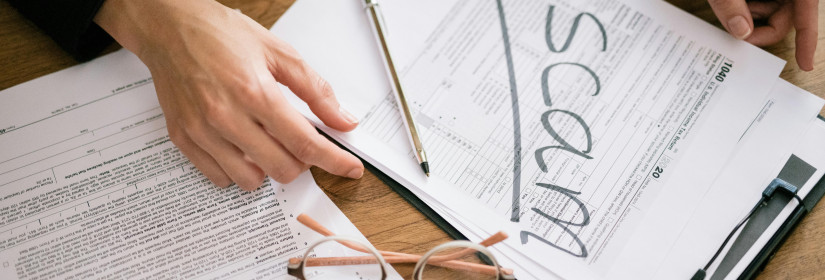The Most Common Sweepstakes Scams and How to Avoid Them

In a world where sweepstakes and giveaways are everywhere, it’s easy to get excited at the thought of winning big. However, scammers know this all too well and have developed convincing tactics to trick people into handing over their personal information and money.
Here’s a look at the most common sweepstakes scams and, more importantly, how to spot and avoid them.
1. The “You’ve Won!” Email or Phone Call
One of the most common scams starts with an unexpected message or call claiming, “Congratulations, you’ve won a prize!” These messages often come with a catch: you’re asked to pay a “processing fee” or “taxes” upfront before you can receive your prize.
Legitimate sweepstakes will never ask you for money to claim a prize. If you receive one of these messages, don’t respond. Hang up, delete the email, and report it.
Visit the Federal Trade Commission (FTC) for tips on recognizing prize scams.
2. Fake Social Media Sweepstakes
Social media scams have become increasingly sophisticated, with fake profiles posing as legitimate brands or influencers hosting “giveaways.”
Often, these scams ask for personal information or direct you to a fake site to enter your details.
Before you enter any social media sweepstakes, verify the account by checking for a verified checkmark or looking at recent posts. Official brands typically announce sweepstakes on their websites as well.
More from SweepsForMe:
-
Running a Sweepstakes? Here’s How to Navigate Laws and Avoid Legal Pitfalls
- How to Make Your Sweepstakes Entry Legal: Here's A Guide to Navigating Sweepstakes Laws
- Staying Above Board: Key Steps To Legally Host Your Online Sweepstakes
3. Phishing Links in Sweepstakes Emails
Sweepstakes scams often arrive in emails that contain links to malicious websites.
These links might look legitimate, but they often direct you to fake pages designed to steal your personal information.
To protect yourself, never click on a link from an unsolicited sweepstakes email. Instead, go to the official website of the brand or company to verify if they’re running a contest.
Check out this guide on phishing emails from the Cybersecurity & Infrastructure Security Agency.
4. Bogus Checks Sent by Mail
Another common tactic involves scammers sending a check in the mail, supposedly to cover “sweepstakes winnings.” They then ask you to wire back a portion for “taxes” or “fees.”
Unfortunately, these checks are counterfeit, and cashing them can lead to serious financial consequences.
Never cash an unexpected check from a sweepstakes. Legitimate prizes don’t come with strings attached.
Read more about fake check scams on the U.S. Postal Inspection Service website.
5. Imposter Websites
Some scammers create entire websites designed to look like legitimate sweepstakes, even using well-known brand names.
These sites might ask you to fill out detailed forms that request sensitive personal data. To avoid falling for this, always check the URL carefully.
Look for “https” and ensure you’re on the official website by typing in the brand’s URL directly or by finding it through a trusted source.
Visit the Better Business Bureau for advice on identifying fake websites.
Tips for Avoiding Sweepstakes Scams
- Do your research – Verify the legitimacy of the sweepstakes by checking the company’s official website.
- Be wary of fees – Legitimate sweepstakes will never ask you to pay money to claim a prize.
- Stay cautious with personal information – Only provide your personal details on trusted websites.
- Use secure methods of entry – For additional security, stick to entering sweepstakes through official company channels, like their website or verified social media pages.
Previous article: Behind the Scenes: How Sweepstakes Are Designed and Managed
-
Be the first to know about our incredible prizes and never miss a chance to participate!
Subscribe now for the latest updates, entry opportunities, and insider tips to increase your chances of winning.












